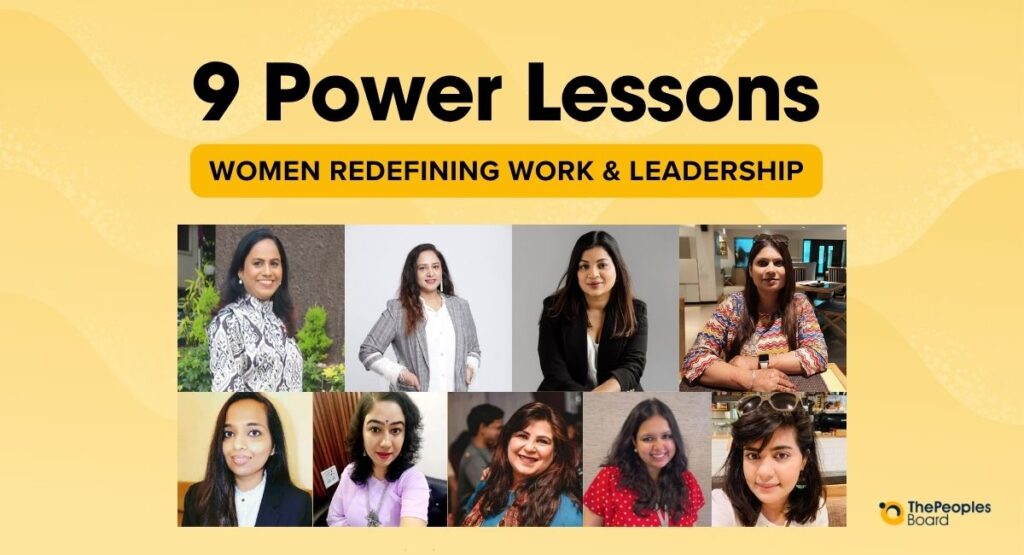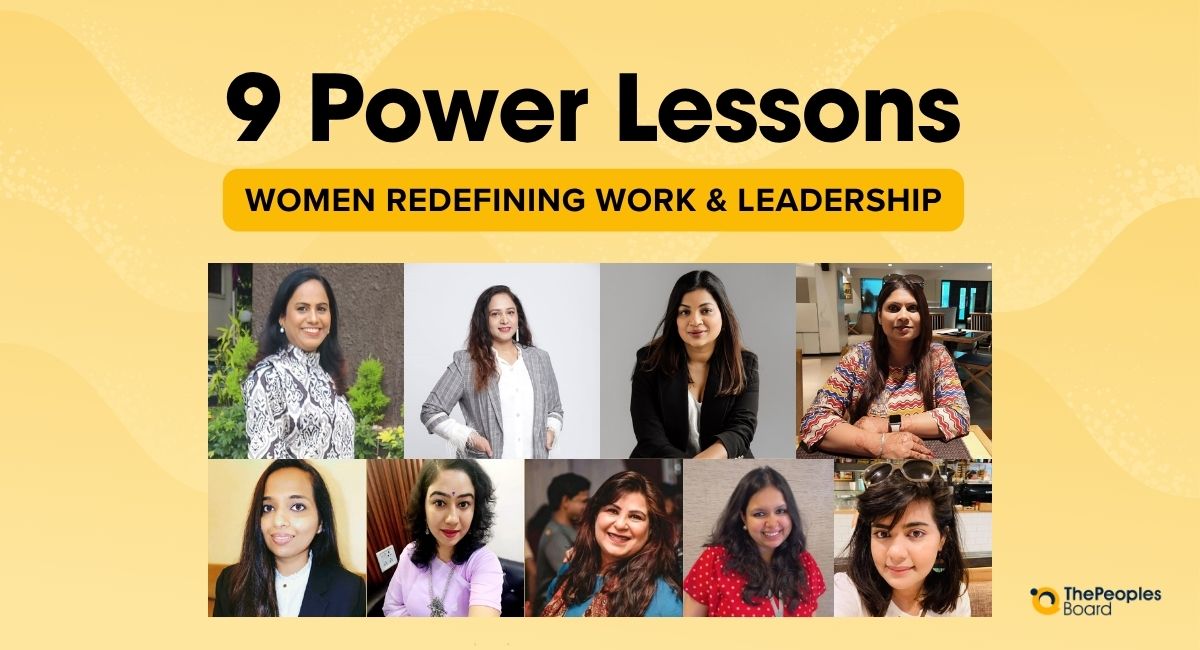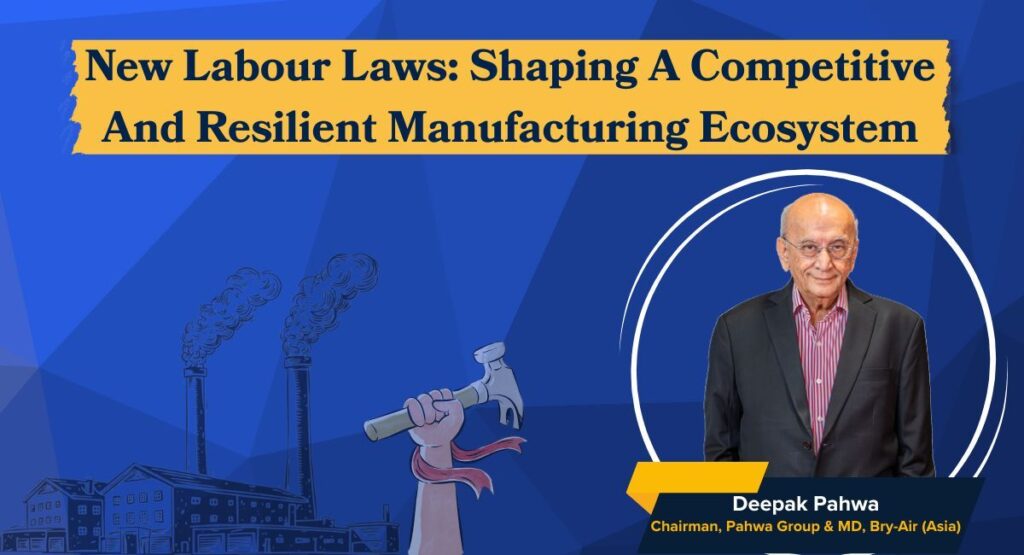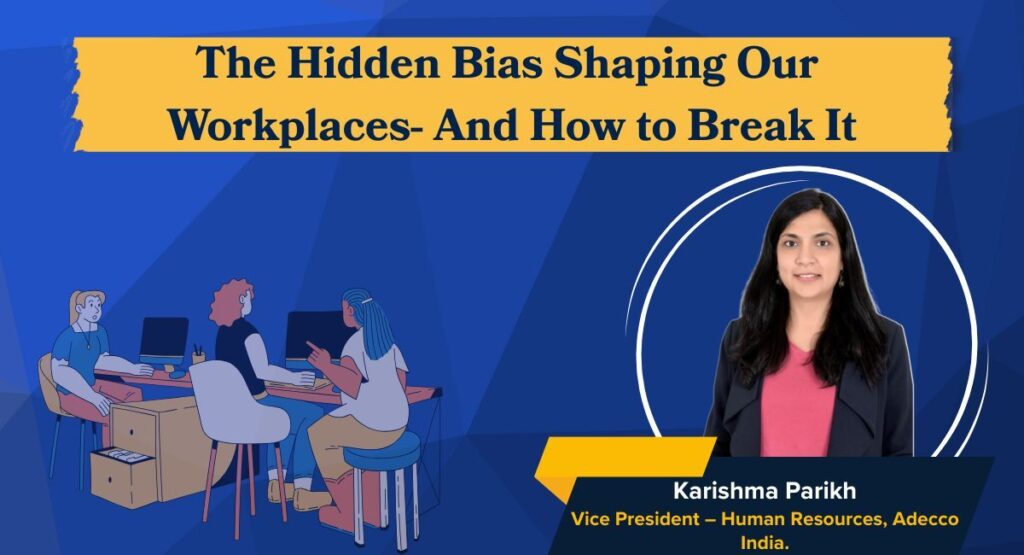Durga Puja is a celebration of the strength and resilience of women. Whether in a professional or personal setting, the zeal, dedication, and precision that women often bring have helped them emerge as leaders in their own right, despite the many societal challenges.
This Durga Puja, ThePeoplesBoard Team spoke with nine remarkable women to capture their perspectives on the issues that continue to shape the experiences of working women across India.
“Equal Representation is Not Just a Moral Imperative”

How far do women still have to go in India to gain equal representation in company leadership? As per Madhhuumita Bbagai, Chief People Officer, The Mystique Group, the journey till now has indeed been impressive, but there is still much more to come.
“India has made meaningful progress in advancing gender diversity, particularly in the workplace. Policies mandating women on company boards and initiatives to improve inclusion have provided momentum. Yet, when it comes to leadership representation, the journey is far from complete.
Leadership often demands visibility, mobility, and risk-taking—areas where societal norms continue to hold women back and thereby their presence in senior leadership remains limited.
The pipeline of future women leaders is also fragile, with many talented professionals leaving mid-career. To address this, organisations must invest in targeted leadership development programs, flexible work policies, and unbiased recruitment and promotion practices. Equal representation is not just a moral imperative but a business necessity. Organisations that harness women’s leadership will be better positioned to innovate, compete, and thrive in a changing world.”
“We Keep Raising the Standard as We Go”

When it comes to envisioning their own ventures, women entrepreneurs, as Sonika Mehta, Co-Founder and Product Director of Zonka Feedback, have a high bar of their own.
“I think what really sets women apart when they think about starting something of their own is the bar we set for ourselves. It’s usually very high — not because anyone else asked us to, but because we hold ourselves to it. There’s this constant internal dialogue, a push to show up fully, to prove (mostly to ourselves) that we can build something meaningful and do it well.
That struggle isn’t always easy — it can be exhausting at times — but it also makes us sharper and more detail-oriented. We notice things others might miss, we prepare more thoroughly, and we keep raising the standard as we go. That combination of high expectations, accountability, and resilience shapes not just the vision, but how we bring it to life.”
“POSH is Not Just Compliance—It is Empowerment”
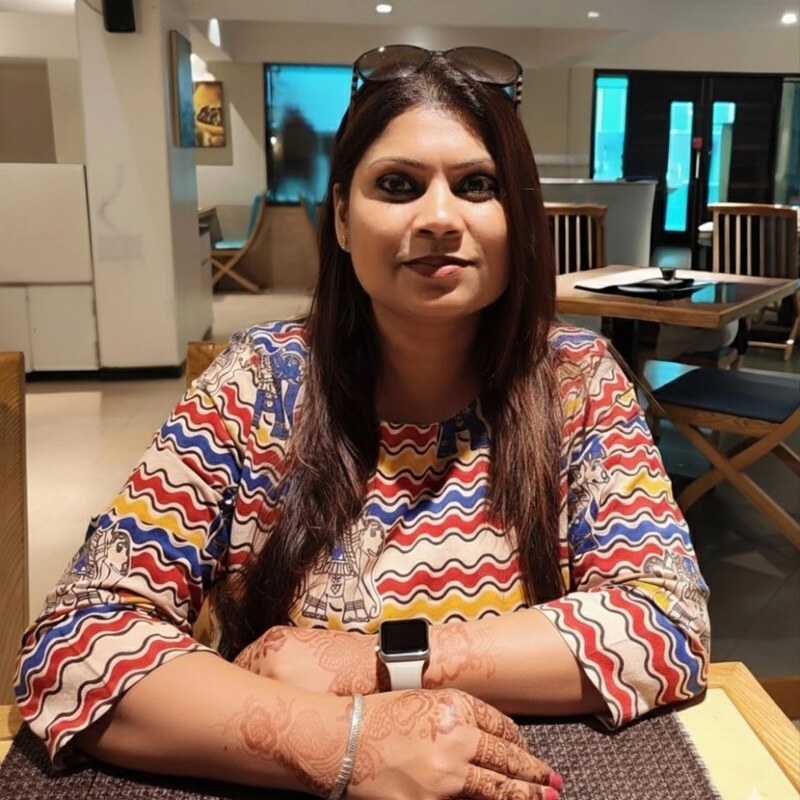
The POSH Act has been monumental in India when it comes to safeguarding women in the workplace. Having worked on POSH-related matters over the years, Lakshmi Rai, Founder of The Wish House, Good Things Ahead Foundation, and Bunai Silai, is well aware of how much impact a single piece of legislation has had on professional women.
“In every training session I conduct, whether with young graduates, mid-career professionals, or senior leaders, I see how deeply women value safe workplaces. What often holds them back is not their talent but the fear of being judged, silenced, or dismissed when they face discomfort. The Prevention of Sexual Harassment (POSH) policy ensures that this fear does not define their careers.
For a 23-year-old management trainee, POSH provides the courage to call out “casual jokes” that cross boundaries. For women in their 30s and 40s, it is the assurance that their growth will not be stifled if they speak up. For senior leaders, it is the dignity of finally working in an environment that acknowledges what they endured quietly years ago.
As an external member of several Internal Committees and a POSH trainer, I have witnessed the shift when awareness becomes culture. Women walk into meetings with greater confidence, focus more on ideas, and contribute without hesitation. Organizations, in turn, benefit from creativity and collaboration.
In today’s hybrid and fast-changing work environment, POSH is not just compliance—it is empowerment. It reminds us that dignity is a right, not a privilege, and when women feel safe, they truly thrive.”
“Despite Ongoing Efforts, Progress Remains Slow”

Though workplace equality is the ultimate goal for women in the workplace, the path to achieving it is far from simple. Samriti Malhotra, Group CHRO, UDS Group, talked about the systematic biases that keep challenging working women even today.
“True workplace equality remains elusive not because of a lack of talent or ambition among women, but because of deeply entrenched systemic biases, legal barriers, and cultural norms that continue to restrict their opportunities, advancement, and recognition.
Women’s workplace equality is held back by wage gaps, leadership barriers, bias, and caregiving pressures. Globally, women earn less than men, are promoted at lower rates, and remain underrepresented in senior roles.
Cultural norms and stereotypes impact hiring, promotions, and everyday interactions, while workplace harassment or lack of legal protections further discourages participation. Women shoulder a disproportionate share of childcare and family responsibilities, with most organisations lacking robust policies to support them.
Systemic issues include fewer high-profile assignments, less access to sponsorship, and weak professional networks, further limiting career growth. Discriminatory laws and labour practices also restrict women’s access to certain jobs and industries worldwide. Despite ongoing efforts, progress remains slow—lasting change requires policy reform, active leadership support, and cultural shifts within organisations.”
“Women Often Face Greater Challenges in Being Assertive”

Swapnil Jain, Founder, Mriash Law, highlighted how being assertive in certain fields can often be harder for women when compared to men. When working in a communicative field like law, this can indeed be a major obstacle, but that has not stopped women from rising through the ranks.
“In the Indian legal context, women often face greater challenges in being assertive, though the degree varies across sectors such as litigation, corporate practice, academia, and the judiciary. Litigation, particularly at the lower courts, remains heavily male-dominated. Historically, clients were predominantly men, and senior roles in organisations were held by men, shaping a culture where women’s assertiveness is often judged through a male gaze.
What is seen as confidence and leadership in men may be misread as being “difficult” in women. This is compounded by social conditioning that encouraged women to prioritise agreeableness, leaving assertiveness both underrepresented and underappreciated.
Encouragingly, the landscape is changing. More women are rising to senior positions, becoming partners, and even founding their own firms, thereby creating role models for younger female lawyers. While women may sometimes hesitate to assert themselves, they consistently excel in multitasking, meeting deadlines, and adopting a detail-oriented approach – qualities that are increasingly valued alongside, and sometimes above, assertiveness.
From personal experience, I have seen female friends become equity partners, offering both inspiration and a support system through shared conversations on leadership and management. With Gen Z showing a natural inclination towards assertiveness, supported by millennial and Gen X role models, the trajectory is clearly improving.”
“This Too, Shall Pass.”

Maternity leaves across the world acknowledge efforts made by new mothers. However, rejoining the workforce after the same can be hard, especially with a new addition to the family. Shreya Agrawal, Manager – People Support Services, Thales, shared just how to embrace this role and make a comeback.
“Right when you join back, you will feel like a “New Joiner” and just embrace it.
Set your priorities and invest time in planning ahead of time. This will give you lead time and have your mental peace. Make sure to not shy away from seeking help. There will be days when you will feel things are impossible, but remember “THIS TOO, SHALL PASS” and don’t forget the real you is not meant to settle for anything less and why you are in the game! Most importantly, give ‘Time’ time and yourself ‘Time.'”
“Companies Need to Take Corrective Action”

Despite the growing presence of women in the workplace, there are still certain factors that continue to hold them back. Ruchi Jain, Region Director, West Delhi, Banyan Tribe, shared just how deep-rooted certain issues are even today.
“Rigid ideas about women’s roles and biased workplace cultures are still holding back Women to grow.
Despite the progress, it’s clear that most workplaces are a long way from achieving true gender equality. These include:
- Equality of opportunity and treatment in employment
- Equal remuneration for work of equal value
- Equal access to safe and healthy working environments
- Equality in association and collective bargaining
- Equality in obtaining meaningful career development
- A balance between work and home life that is fair to both women and men
- Equal participation in decision-making at all levels
Women are still facing these issues, and companies need to take corrective action.
Research shows: Inclusive companies are more innovative, experience higher sales and profits, and have better employee retention.
Advancing gender equality boosts productivity and strengthens the economy across various sectors.”
“Many Women Hesitate to Give Reasons”

The position of women within Indian society is certainly unique and challenging. When asked if the society’s perception of a woman’s role at home affects their professional life, this is what Mansi Garg, Vice President of Sales at Profit.co, had to say:
“Yes, society’s perception does affect women’s professional lives. Many women hesitate to give reasons men would easily state, fearing judgment either at work or at home. This constant need to prove themselves on both fronts often leaves them burnt out, balancing expectations that should have been shared.”
“Women Must Come Forward”

As per Surbhi Koul, Regional Employee Relations Consultant, Cengage Group, it is imperative for women to rise in the workplace to help others to do the same. In hard-hitting words, she questioned why the woman still needs to prove their place in the current modern society.
“It is absolutely vital for women to rise, lead, and uplift others in their fields to drive fair representation and demand equal rights. But the deeper question is—why are women still being asked to prove their place? Why in today’s so-called modern society, are we still debating equality as if it’s a privilege to be earned rather than a right that should be guaranteed?
The truth is, despite all the progress, women continue to face subtle and overt barriers—made to feel less confident, underestimated, and constantly measured against outdated standards. Society proudly preaches equality in public, yet quietly upholds double standards behind closed doors.
This contradiction is the very reason women must come forward—not just to claim their own space, but to lift others with them, to expose the bias, and to demand the respect and fairness that should never have been negotiable in the first place. Equality should not be an aspiration—it should be the norm.”
In the End…
Through their differing quotes and unique words, each one of our featured professionals remained consistent behind their continued drive for women’s empowerment. Equity remains the common call in their voices as they champion the causes that they hold close to their hearts.
